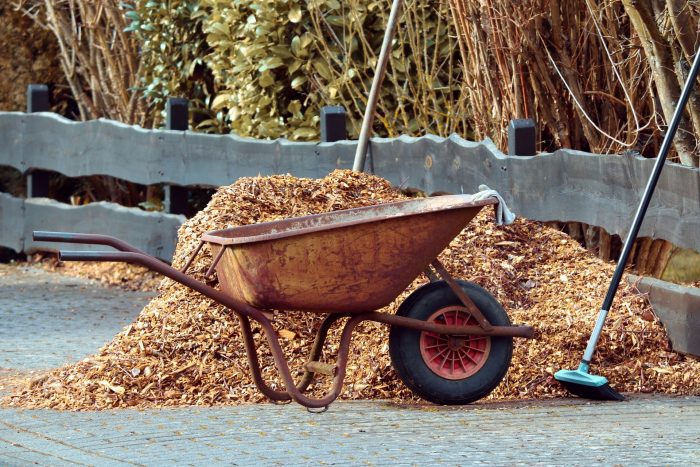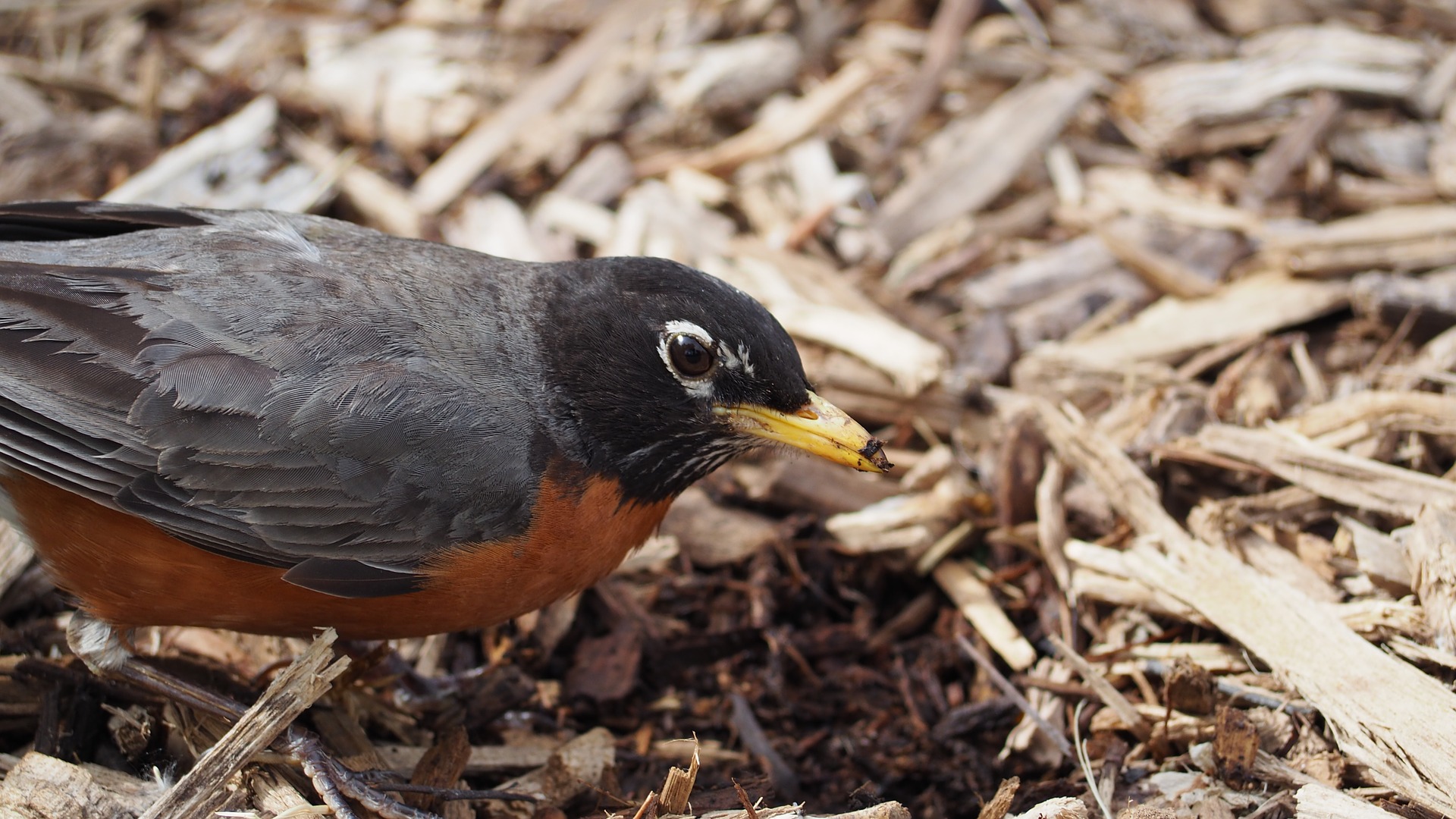We are crawling closer to spring every day here in Camas, Washougal, and Vancouver, Washington. As we all know, spring awakens the growing season, where beautiful blooms can be seen throughout the state. However, with these desirable plants also comes the not-so-desirable ones as well: weeds. One effective method for slowing the growth and spread of weeds is by applying mulch. We have already discussed what inorganic mulch is, so here we will answer the question of what is organic mulch?

What’s Mulch?
Mulch is, in essence, a cover material that is spread over the surface of soil. There are many reasons for and benefits of spreading mulch. Mulch helps to stop the germination of weeds and, therefore, hinders the growth and spread of undesirable plants. Mulch also helps to insulate soil and plants against extreme temperatures. Furthermore, mulch also helps to retain moisture in soil, fights against erosion and can be aesthetically appealing.
Organic Mulch vs Inorganic Mulch
Most inorganic mulch will offer the same benefits listed above as organic mulch. However, there is one main difference between organic mulch and inorganic mulch; organic mulch is made from something that was once living (i.e. trees, bark, grass, etc.), whereas inorganic mulch is, generally, manmade. Perhaps the biggest benefit of organic mulch is that it helps to build soil. As the mulch breaks down it adds vital nutrients to the soil, improving the health. It is worth noting that this does mean that organic mulch will have to be replaced or refreshed more often than inorganic mulch.
Types of Organic Mulch
Organic mulch comes in a variety of styles. Various mulches are used for different purposes, so it is best to establish what you are trying to do with your mulch before choosing what type to apply to your garden or flower beds.
Leaves
The most affordable type of mulch is leaves. Leaves, although, perhaps, not the most attractive type of mulch to use on garden beds is still a legitimate choice for mulch, especially when your goal is to build soil. In Washington State leaves are incredibly abundant, and free! Although whole leaves will work just fine, shredding the leaves to small bits will yield the best results. Leaves can be spread out as mulch in any location, but, perhaps, the most popular and beneficial location to use leaves is in a vegetable garden. Not only does spreading leaves throughout your garden help to build soil it also serves as a way to dispose of unwanted leaves.
Bark or Wood Chips
The most common organic mulch that people use throughout their landscapes is bark mulch or wood chips. It comes in a huge variety of colors and styles that will meet most peoples’ preference. Cedar, hemlock, or pine are the most common types available. Bark mulch can come in different shapes or forms as well; chips, nuggets or a finer dust are common. Commonly placed around trees, bushes, or shrubs, as well as in flower beds, bark mulch is a versatile product.
Grass Clippings
Grass clipping, collected from mowing your lawn, can also be used as a mulch. Grass mulch retains an incredible amount of moisture but breaks down quickly and will have to be refreshed or replenished the most often out of any of the mulches listed here. The most common location to spread grass clippings is directly back into the lawn itself. In order to accomplish this, instead of using a bagger on your mower, use the mulching feature which diverts the clipping directly back into the lawn. As the grass clippings decompose, they add vital nutrients into the soil beneath your lawn; this improves the overall health of your lawn.
Straw/Hay
Straw and hay are two more examples of affordable, organic mulch. This form of mulch is most commonly used in vegetable gardens as well. The best way to use hay or straw is to spread it out underneath established plants. This will protect the soil and help to retain moisture. This method will result in having to water your garden far less during the summer months. Adding straw or hay to your garden also combats muddy conditions that often occur in gardens. The best part is that hay and straw break down relatively quickly and will add beneficial nutrients to your soil that your current and future plants will thrive on.
There are many benefits of adding organic mulch to your landscape. If you are looking for someone with the skill and know-how to properly install mulch for you, consider Urban Eden Landscaping. Contact us or fill out our FREE estimate request today!

